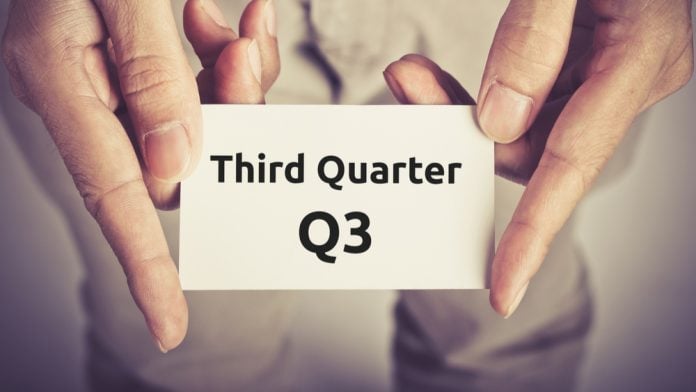LeoVegas has cited various changes implemented within Germany, coupled with the ongoing regulation, which resulted in its Q3 net gaming revenue decrease in the European region.
Recording a 19 per cent decrease overall in Europe compared to the same period in 2020, Germany’s NGR witnessed a steep 83 per cent drop during the quarter, with the market now accounting for three per cent of the group’s total revenue, compared to 17 per cent last year.
Despite the European downtrend, LeoVegas reported that it experienced growth in “most markets,” with Spain and Italy noted as the fastest growing markets during the quarter.
The Nordic countries were reported as the largest region during the third quarter and accounted for 44 per cent of the group’s NGR with the rest of Europe accounting for 34 per cent, while the rest of world accounted for 22 per cent.
Describing the quarter as an ‘intensive re-regulation period’ due to the implementation of the regulatory framework for the emerging Dutch online betting market and the re-regulation of the German sector with the launch of the Fourth Interstate Gambling Treaty, LeoVegas disclosed that total revenue rose by 21 per cent when both markets are discounted.
Developments in the Netherlands in particular were described as creating a “somewhat turbulent and difficult to navigate current situation in the gaming industry”. In particular the decision by the Dutch regulator, the Kansspelautoriteit towards the close of September to require all gaming operators that had not yet been granted a licence under the terms of the KOA Act to cease operations in the country.
Commenting on the European results, Gustaf Hagman, president and CEO at LeoVegas, explained: “We are satisfied with our performance during the third quarter and increased our revenue by 12 per cent compared with the same period a year ago. Excluding Germany, which has been dramatically affected by the ongoing re-regulation, consolidated revenue increased by 31 per cent.
“All key markets performed well during the quarter, where our home market in Sweden was the brightest star. The favourable revenue growth for the group confirms that the strategy to simultaneously scale up a number of markets and relaunch the Expekt brand has been a success. The company today is more diversified than ever, and we have succeeded in compensating for the sharp drop in revenue in Germany.”
In contrast to its European counterpart, the company’s results revealed that its ‘Rest of World’ region saw an NGR increase of 42 per cent compared to 2020, with LeoVegas noting that development was “strong” in most markets and pinpointed Canada as the largest market with high double-digit growth during the period.
Moreover, revenue from locally regulated markets, and markets in which the group pays local gaming taxes, accounted for 66 per cent of total revenue during the third quarter (2020: 68 per cent).
Additionally, the share of regulated revenue increased slightly compared with the preceding quarter, with the strong Swedish performance being highlighted as a key driver.
LeoVegas’ gross profit for the third quarter came in at SEK 66.3m, corresponding to a gross margin of 66.8 per cent, a slight 2.4 per cent decrease from the previous year. Moreover, gaming taxes totalled €15.9m (2020: €12.4m), resulting in 16 per cent of revenue, up from 13.9 per cent in 2020.
The firm’s casino sector also accounted for 76 per cent of its gross gaming revenue, with live casino reporting 14 per cent and sportsbook 10 per cent, LeoVegas noted that the increase of the latter compared to Q3 2020 was mainly driven by the acquisition of Expekt.
Furthermore, the Q3 trading report revealed that the average player value per depositing customer was €205, an increase of one per cent compared to Q2 of this year and a five per cent rise compared with the same quarter last year.
At the same time, the player value was lower than the “historic average,” which LeoVegas cited was mainly explained by “a larger share of players playing for fun and a changed geographical mix, which is in line with the company’s growth strategy”.
“During the quarter we delivered a stable operating profit compared with a year ago, despite a sharp increase in paid gaming taxes and higher marketing investments in relation to revenue compared with a year ago,” explained Hagman.
“In pace with growing revenue, the share of marketing investment is expected to gradually decrease from the current levels. At the same time, we have continued to invest in product and technology ahead of forthcoming market expansions, including the upcoming US launch.
“We are seeing some normalisation of office and travel-related costs as the pandemic is hopefully nearing its end, while general cost control in the group continues to be good. All in all, we expect – through the economies of scale provided by a larger revenue base – to be able to deliver good earnings growth going forward.”
LeoVegas also witnessed its revenue increase by 12 per cent to €99.4 per cent (2020: €88.9) with organic growth in local currencies witnessing an eight per cent rise.
Company operations during the third quarter saw LeoVegas repurchase shares for €2.5m and paid out the second dividend – €3.9m – of a total of four quarterly dividends to the parent company’s shareholders. Moreover, the firm expanded its existing bond issue by SEK 200m.
Q3 also saw the launch of its new AI-powered functionality to scale up the group’s responsible gaming efforts with customers in the UK becoming the first to receive product-integrated and personalised messages based on their own behaviours and gaming history.
Looking at the start of the next quarter, Hagman concluded: “Revenue for the month of October amounted to €31.1 m (2020: €32.8), representing negative growth of five per cent. Excluding Germany and the Netherlands, revenue increased by 21 per cent. The sportsbook margin was abnormally low in October, which had a negative impact on revenue, while underlying customer activity has remained solid.”













